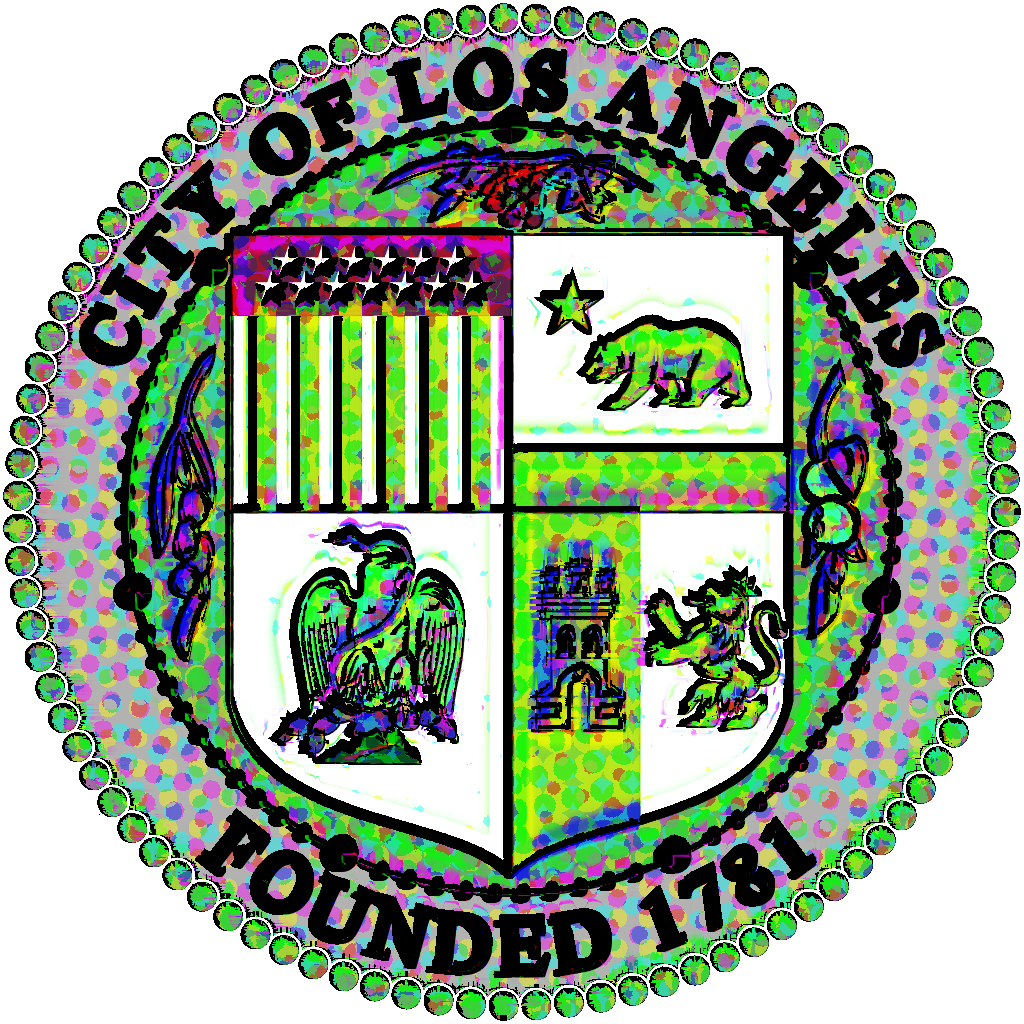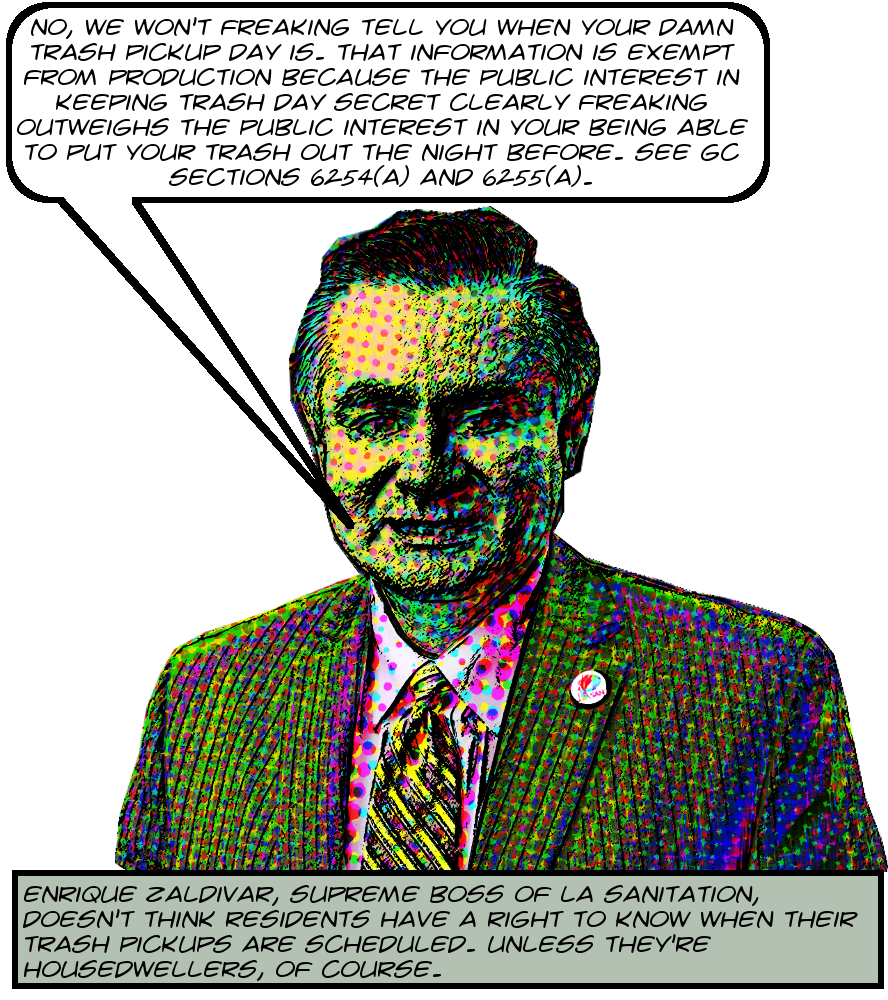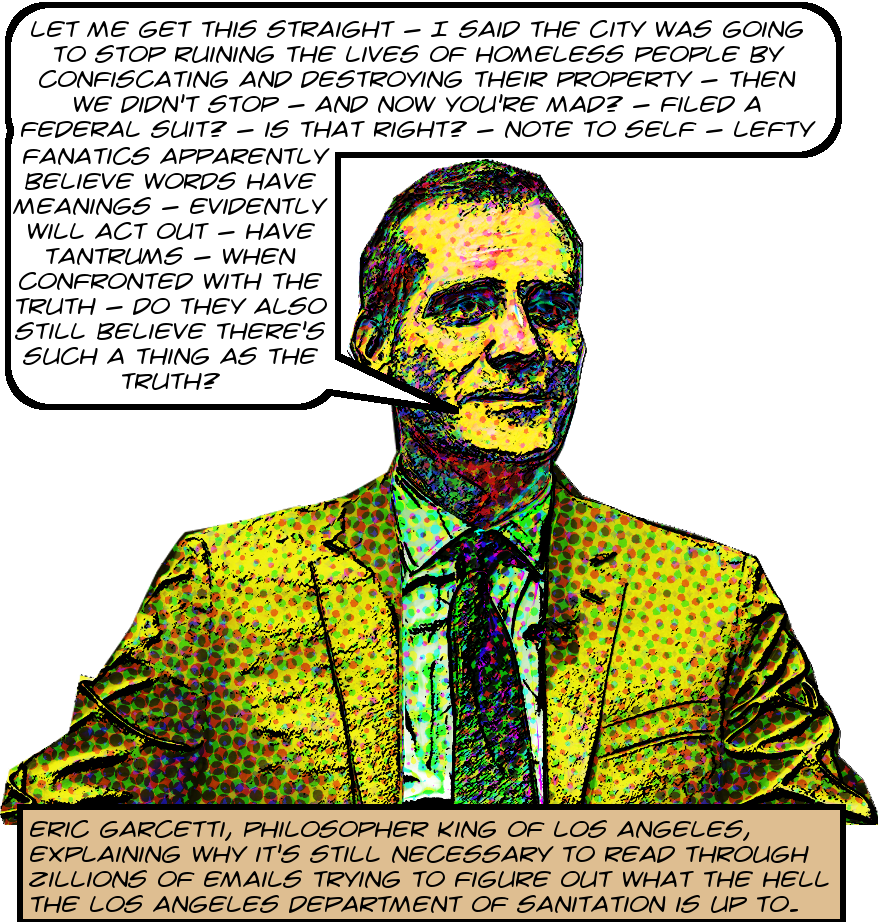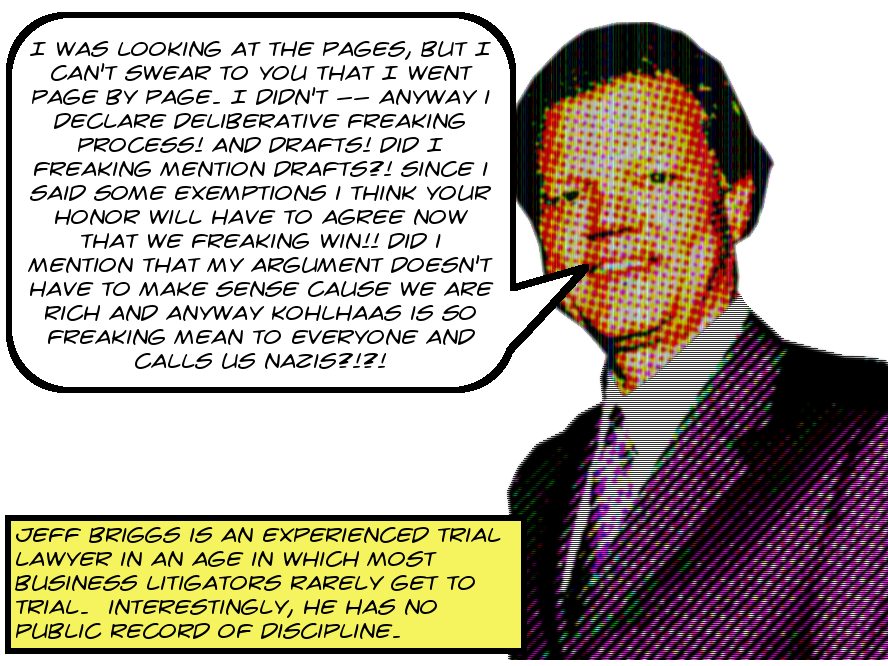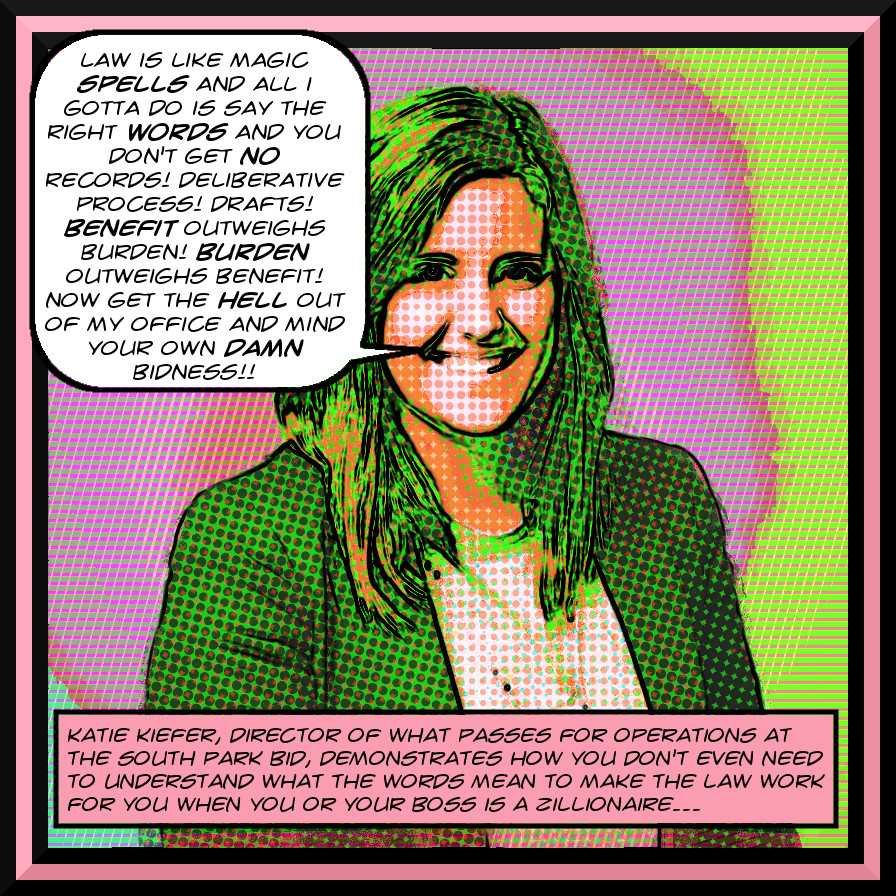So I sent them a few [CPRA] requests … and they made a few desultory stabs at answering me in compliance with the law and then stopped responding at all. But as you’re probably aware, the situation with this Klown Kar Krew has grown ever more urgent, more of public interest than ever before.
What, that is, with their retaliatory firing of long-time employee Hilda Guzman and subsequent unfair labor practices complaint by her union, with repeated community protests at their infernal board meetings, and the unexpected1 recent petulant rage quit by now thankfully former board chair Juli Quinn. We need to be able to understand what these folks are up to! Which is why their special variety of unhinged intransigence can’t go unanswered, not if we expect government of, by, and for the people to not perish from this earth.
Remember all the way back in December 2019 when I was forced to file yet another lawsuit seeking to enforce the California Public Records Act against yet another white supremacist gentrifying charter, this one known as The Accelerated Schools? Well, it happened. And after fooling around for almost a year, TAS2 produced a bunch records in October 2020.3 Exciting, of course, but they were up to their usual no-good nonsense and the production was deficient in a number of essential ways.
Continue reading In October 2020 The Accelerated Schools Produced Five GB of Records In Response To My 2019 Requests — And In Response To The Lawsuit I Filed In December Over Their Refusal To Comply With The Law — The Production Was Huge But Seriously Deficient In A Number Of Ways — And Their Exemption Claims Were The Usual Implausible Nonsense — Through My Lawyer — The Incomparable Robert Skeels — I Begged Them To Be Sensible And Discuss — Pleaded Even — But They Unaccountably Refused — So We’re Going To Trial On March 23 2021 — Unless They Come To Their Damn Senses Before Then — Get A Copy Of The Trial Brief Here!

